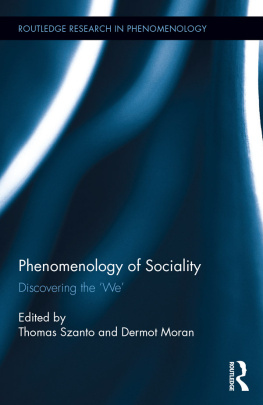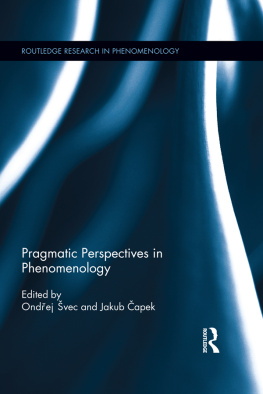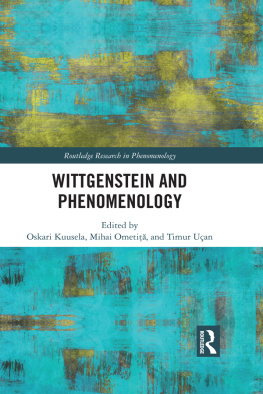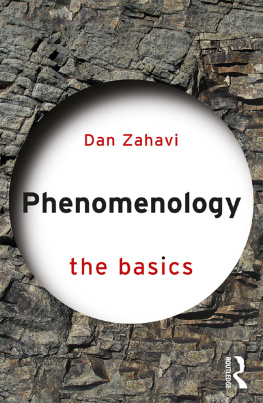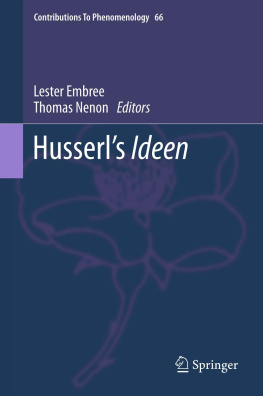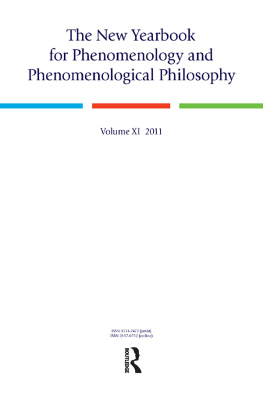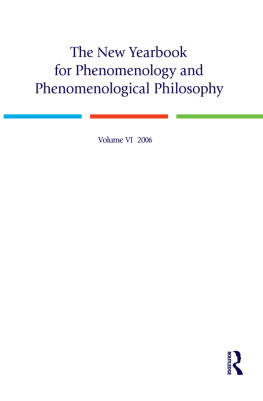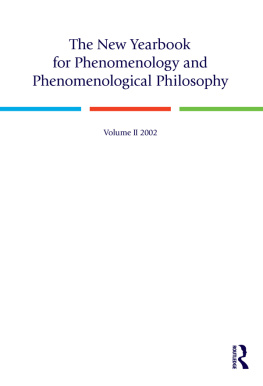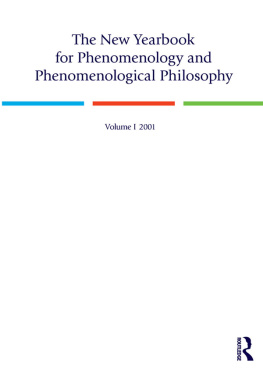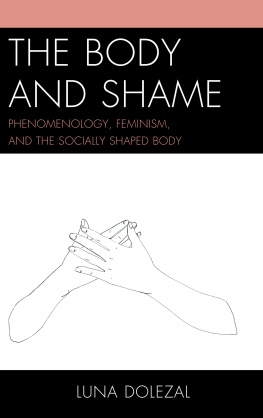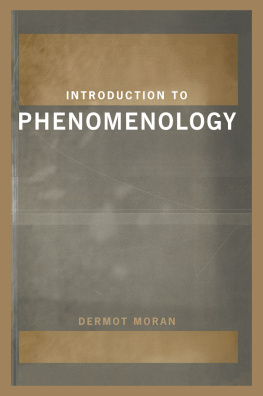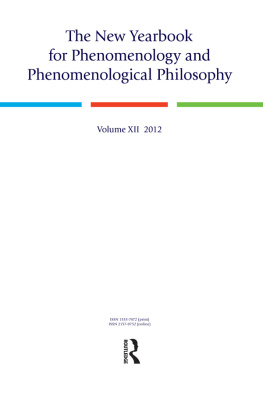Phenomenology of Sociality
Szantos and Morans volume is a veritable treasure trove that amply documents the fertility and richness of the phenomenological tradition. Containing contributions on both familiar and lesser well known phenomenologists, Phenomenology of Sociality: Discovering the We is mandatory reading for anybody working on sociality and collective intentionality.
Dan Zahavi, University of Copenhagen
This book is essential reading for anyone interested in the phenomenological foundations of the social mind and our experience of living together in a common world of the We. It brings together eminent scholars and talented young researchers to evaluate the relevance of a phenomenological theory of sociality in contemporary philosophical and interdisciplinary discussions, thereby revitalizing lesser-known voices from the tradition as well as exploring new directions of phenomenological research.
Thiemo Breyer, University of Cologne
A groundbreaking collection of fresh insights into the nature of the social self.
James Mensch, Charles University, Prague
Phenomenological accounts of sociality in Husserl, Heidegger, Merleau-Ponty, Sartre, Scheler, Schtz, Stein, and many others offer powerful lines of arguments to recast current, predominantly analytic, discussions on collective intentionality and social cognition. Against this background, the aim of this volume is to reevaluate, critically and in contemporary terms, the rich phenomenological resources regarding social reality: the interpersonal, collective, and communal aspects of the life-world (Lebenswelt). Specifically, the book pursues three interrelated objectives: it aims 1.) to systematically explore the key phenomenological aspects of social reality; 2.) to offer novel, state-of-the-art assessments of both central and lesser-known proponents of the phenomenology of sociality (Gurwitsch, Lwith, von Hildebrand, and Walther), and 3.) to contextualize this elaborate body of work in light of contemporary social cognition research, the growing literature in analytic social ontology, and current trends in moral psychology, moral phenomenology, and social and political philosophy. The collection brings together original work by a host of prominent scholars and upcoming young talents to provide a comprehensive and up-to-date treatment of the topic. It will be essential reading for those studying phenomenological accounts of intersubjectivity, empathy, and community, including analytic, social, moral, and political philosophers, and will also be of interest for social scientists and social psychologists.
Thomas Szanto is a Postdoctoral Research Fellow at the Center for Subjectivity Research (CFS), at the University of Copenhagen, Denmark.
Dermot Moran is Professor of Philosophy at University College Dublin, Ireland and Sir Walter Murdoch Adjunct Professor in the Humanities at Murdoch University, Australia.
Routledge Research in Phenomenology
Edited by Sren Overgaard, University of Copenhagen, Denmark,
Komarine Romdenh-Romluc, University of Nottingham, UK,
and David Cerbone, West Virginia University, USA
1Phenomenology and the Transcendental
Edited by Sara Heinmaa, Mirja Hartimo and Timo Miettinen
2Philosophy of Mind and Phenomenology
Conceptual and Empirical Approaches
Edited by Daniel O. Dahlstrom, Andreas Elpidorou, and Walter Hopp
3Phenomenology of Sociality
Discovering the We
Edited by Thomas Szanto and Dermot Moran
Phenomenology of Sociality
Discovering the We
Edited by Thomas Szanto and
Dermot Moran

First published 2016
by Routledge
711 Third Avenue, New York, NY 10017
and by Routledge
2 Park Square, Milton Park, Abingdon, Oxon OX14 4RN
Routledge is an imprint of the Taylor & Francis Group, an informa business
2016 Taylor & Francis
The right of the editors to be identified as the author of the editorial material, and of the authors for their individual chapters, has been asserted in accordance with sections 77 and 78 of the Copyright, Designs and Patents Act 1988.
All rights reserved. No part of this book may be reprinted or reproduced or utilised in any form or by any electronic, mechanical, or other means, now known or hereafter invented, including photocopying and recording, or in any information storage or retrieval system, without permission in writing from the publishers.
Trademark notice: Product or corporate names may be trademarks or registered trademarks, and are used only for identification and explanation without intent to infringe.
Library of Congress Cataloging-in-Publication Data
Phenomenology of sociality : discovering the we / edited by Thomas Szanto
and Dermot Moran. 1st [edition].
pages cm. (Routledge research in phenomenology ; 3)
Includes bibliographical references and index.
1.Intersubjectivity.2.Phenomenology.I.Szanto, Thomas, editor.
B824.18.P44 2015
142'.7dc232015031324
ISBN: 978-1-138-91879-5 (hbk)
ISBN: 978-1-315-68826-8 (ebk)
Typeset in Sabon
by Apex CoVantage, LLC
Contents
THOMAS SZANTO AND DERMOT MORAN
Part I
Historical and Methodological Issues
JAMES RISSER
SOPHIE LOIDOLT
RICHARD WOLIN
STEVEN CROWELL
Part II
Intersubjectivity, the We-World, and Objectivity
JO-JO KOO
DERMOT MORAN
CATHAL OMADAGAIN
Part III
Social Cognition, Embodiment, and Social Emotions
JOONA TAIPALE
FELIPE LEN
HAVI CAREL
CHRISTIAN SKIRKE
MATTHEW RATCLIFFE
Part IV
Collective Intentionality and Affectivity
NGRID VENDRELL FERRAN
ALESSANDRO SALICE
ERIC CHELSTROM
JOEL KRUEGER
Part V
Collective Agency and Group Personhood
EMANUELE CAMINADA
THOMAS SZANTO
NICOLAS DE WARREN
Thomas Szanto and Dermot Moran
[] I, we, and world belong together.
(Husserl, Ideen II, 288)
Even the Being-alone of Dasein is Being-with in the world.
(Heidegger, Sein und Zeit, 120)
[] the I is but a part of the We, and the We an essential part of the I.
(Scheler, Wesen und Formen der Sympathie, 225)
IFrom the Second-Person Perspective to the First-Person Plural (and Back)
What is it to belong to a We or an Us? What is the nature of interpersonal understanding, social interaction, and social participation? For instance, is sharing a common socio-cultural environment, a common history, or a common life-world, prior to, or even a necessary condition for, such understanding, interaction, or participation, or, rather, a result of them? How can we collectivelyrather than just you and me, and othersconstitute and share norms, experiences, or even emotions? Are there any other proprietors of the social domain? Is social reality composed entirely of individuals, or are there also irreducibly plural subjects or We agents?
Curiously, the nature of social and collective identity or plural agency has not been at the forefront of philosophy over the past hundred years, although it has been treated in sociology and in those social sciences inspired by Marxism and, in some more restricted circles, by Hegelianism. As a matter of fact, the issue of collectivity has only relatively recently been given serious attention in analytic philosophy, especially in the work of Michael Bratman, Margaret Gilbert, Philip Pettit, Carol Rovane, John Searle, and Raimo Tuomela. There is an older tradition especially stemming from the work of Peter Winch, and Georg Henrik von Wright, which was, in turn, inspired by Wittgenstein and Collingwood, but this tended towards the philosophical critique of sociological explanation rather than an examination of the nature and varieties of togetherness.

